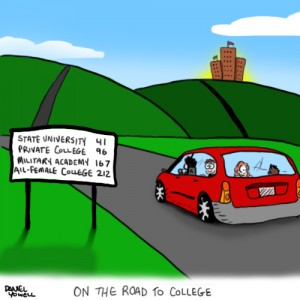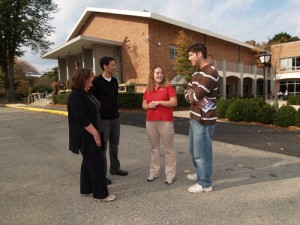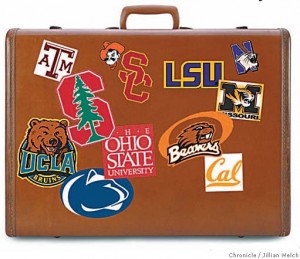 In the spring of my daughter’s junior year we began our college visits. Since we live in Texas, we began with Texas colleges. My daughter was and is a very opinionated person. She knew what she wanted and she was very precise in her particulars.
In the spring of my daughter’s junior year we began our college visits. Since we live in Texas, we began with Texas colleges. My daughter was and is a very opinionated person. She knew what she wanted and she was very precise in her particulars.
Here are four different college visit experiences we had with her. They prepared her for her final choice which wasn’t in Texas and wasn’t her dream school. You just never know where the journey will take you.
Baylor University
This wasn’t an actual visit, but it does demonstrate how emotional college visits can be. She refused to visit Baylor because Waco was the location of the Branch Davidian compound. Even though she had several friends who were considering that college and the setting and course offerings were perfect for her, she crossed it off the list before we ever set foot on campus.
North Texas State University
This was the only public university she visited and we had barely stepped out of the car before she said, “I don’t like it here. It’s ugly.” We did take the campus tour, which further cemented her distaste for the campus. It was one of the only colleges on her list that had a strong program of study that interested her, but there was no convincing her to consider it after the visit.
SMU
When we drove up to this private university, it was love at first sight. The campus is gorgeous and the buildings were immaculately maintained. After taking the tour, she decided to spend a night on campus. Meeting other students, seeing the sorority houses and spending time in a few of the classes cemented her love for this school. It would be the jewel to compare other colleges to; and she found one just like it in Boston.
Newberry College
This was a small college in the suburbs of Boston. She applied to this college because 1) it was in Boston, and 2) it had a strong program of study that she was interested in. We visited this college after she was accepted and offered a full-ride scholarship. She never got out of the car. Her words, “I’m just not feeling it.” You can imagine my frustration but I knew that if she wasn’t happy she wouldn’t excel there, especially this far away from home. So I counted to 10, we drove off, and went to the next college—the college she ultimately chose–Bentley College (a campus like SMU in Boston).
As you can see, it’s not an exact science. You can plan and prepare all you want, do your research before visiting, and make a list of likes and dislikes prior to pulling up to campus. But it’s that first impression that will have a lasting impact on their college decisions. There’s nothing logical about a teenager. Prepare for a wild ride.
Read Wendy’s post: Getting the Best out of College Visits
____________________
Wednesday’s child may be full of woe but Wednesday’s Parent can substitute action for anxiety. Each Wednesday Wendy and I will provide parent tips to get and keep your student on the college track. It’s never too late or too early to start!
The bonus is on the fourth Wednesday of each month when Wendy and I will host Twitter chat #CampusChat at 9pm ET/6pm PT. We will feature an expert on a topic of interest for parents of the college-bound.
Wednesday’s Parent will give twice the info and double the blog posts on critical parenting issues by clicking on the link at the end of the article from parentingforcollege to pocsmom.com and vice versa.



 Believe it or not colleges want to know you are interested in attending. This interest will have an effect on their offers of admission. If they give you a coveted “accepted” slot, it only makes sense that those slots will go to the students who demonstrate interest. They are selling a service and they want interested customers, not casual shoppers.
Believe it or not colleges want to know you are interested in attending. This interest will have an effect on their offers of admission. If they give you a coveted “accepted” slot, it only makes sense that those slots will go to the students who demonstrate interest. They are selling a service and they want interested customers, not casual shoppers.


